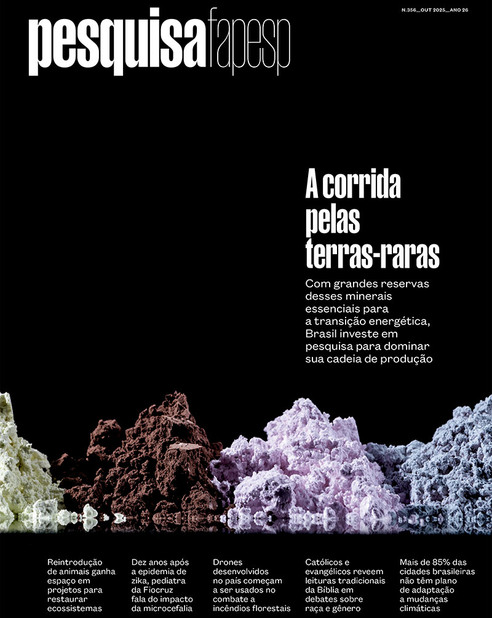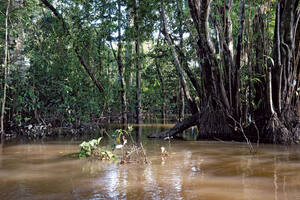Issue # 356 _ October 2025
Cover
- Brazil invests in research to master the production cycle of rare-earth minerals and supermagnets
- Minerals at the center of global geopolitical disputes are considered essential for the energy transition By Frances Jones and Yuri Vasconcelos
- Urban mining can reduce environmental impacts of rare-earth mineral production
- Research groups are developing methodologies for recycling magnets, batteries, and other materials containing these chemical elements By Frances Jones and Yuri Vasconcelos
Communication

Warnings left by users on social media posts containing misinformation have little effect
A study conducted in Brazil, India, and the United Kingdom evaluated data from 3,000 people
By Sarah SchmidtConservation
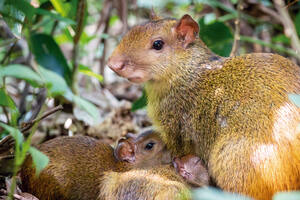
Ecological strategies seek to restore wildlife populations and reverse extinctions
Rewilding and de-extinction represent a new era in ecosystem restoration
By Maria GuimarãesAtmospheric sciences
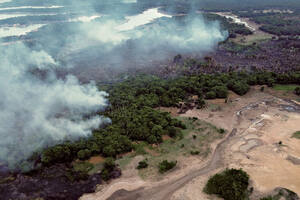
Deforestation is making the Amazon drier while global climate change is making it warmer
By Marcos PivettaEnvironment
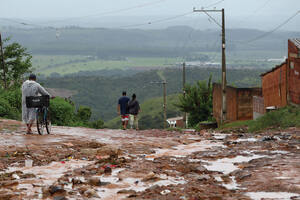
Over 85% of municipalities in Brazil have no climate change adaptation plan
Index calculates capacity to reduce the impacts of extreme events in more than 5,000 cities
By Marcos PivettaPublic policies

Climate change affects children's lives and exacerbates social inequality
Extreme events impact aspects such as school attendance and nutrition
By Mônica ManirEpidemiology

Hormonal and digestive system diseases increase the risk of Parkinson's and Alzheimer's
By Giselle SoaresInterview

FIOCRUZ doctor discusses the problems faced by children with microcephaly caused by Zika
Families suffer from a lack of economic support and medication shortages, as well as neglect
By Ricardo ZorzettoAstrophysics

Black hole with a mass equivalent to 36 billion suns is one of the largest ever found
Discovery was made at the center of one of the galaxies in the system known as the Cosmic Horseshoe
By Marcos PivettaAeronautical engineering
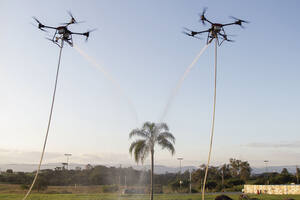
Drones used to fight fires and monitor environmental conditions
By Domingos ZaparolliBiomedical engineering

Camera attached to backpack alerts visually impaired to obstacles
Prototype aims to complement the traditional cane, which only detects hazards near the ground
By Carlos FioravantiInterview

